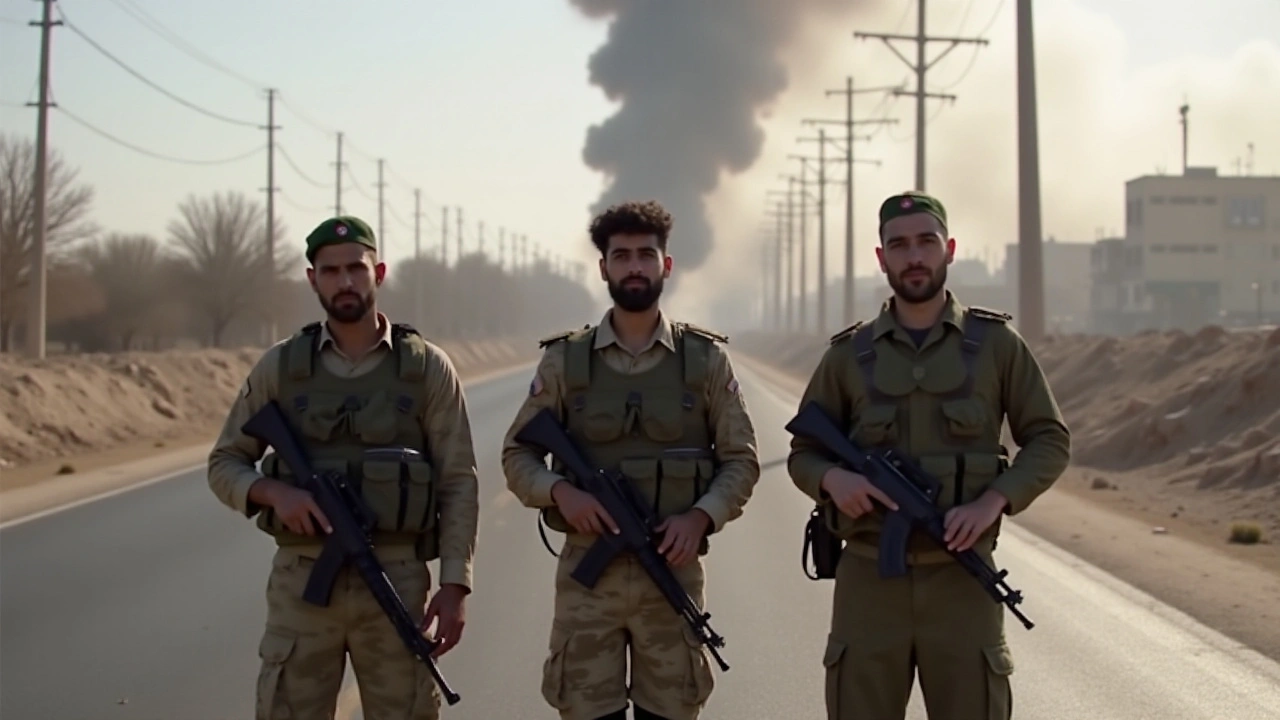Dramatic Developments as Syrian Rebels Enter Damascus
The Syrian civil war, now spanning over a decade since it began in 2011, has taken a dramatic turn as rebel forces enter the suburbs of Damascus. This marks a significant escalation in the conflict that has caused untold suffering to millions in the region. After years of intense fighting, the advance of rebel forces into this strategic region is a pivotal moment that could alter the course of the war.
Syrian insurgents, predominantly led by the hardline Islamist group Tahrir al-Sham, have been gaining ground at a rapid pace over the last two weeks. Their operations have led to the capture of several strategic cities including Aleppo and Hama. This new offensive is part of a larger plan spearheaded by Abu Mohammed al-Golani, Tahrir al-Sham's leader, with the primary aim of overthrowing President Bashar Assad's government. His forces are currently encircling Damascus, signaling a ‘now or never’ push for control.
Strategic Positions and Rebel Advances
The Syrian Observatory for Human Rights reports that the insurgents are active in critical areas such as the Damascus suburbs of Maadamiyah, Jaramana, and Daraya. Now marching from eastern Syria toward Harasta, they appear determined to tighten their hold on the southern approaches to Damascus. Rebel Commander Hassan Abdul-Ghani announced on Telegram that opposition forces have commenced the "final stage" of their offensive, raising the stakes in the ongoing civil war.
Faced with these developments, the Syrian government has been forced to reconsider its military strategies by withdrawing troops from much of the southern provinces, namely Daraa and Sweida. They are redeploying them toward Homs, a city that is under significant threat from the insurgents. The army, undeterred but strained, is focusing on creating a "strong and coherent defensive and security belt" to protect the capital from direct southern threats.
Regional and International Challenges
The rebels' rapid advances have been facilitated by a complex regional backdrop. Assad's international backers, particularly Russia and Hezbollah, are currently preoccupied with their own strategic challenges. With Russia deeply engaged in Ukraine and Hezbollah weakened by prolonged conflict with Israel, Assad finds his support eroded. Meanwhile, Iran's regional proxies have been diminished by extensive Israeli airstrikes, further complicating the defense of Syrian government territories.
These shifts in regional alliances and distractions have inadvertently offered an opportunity for the rebels to capitalize on. As these distractions persist, the ongoing geopolitical chess game continues to mold the war's trajectory. This strategic opening highlights the shifting alliances within the region and reflects the deep-rooted complexities of the Syrian conflict and its geopolitical implications.
Dire Humanitarian Situation Amidst Escalation
As military engagements intensify, the humanitarian impact deepens. Thousands find themselves fleeing the conflict zones, creating another wave of displacement that exacerbates Syria's already dire humanitarian crisis. Vital cities and border crossings have changed hands, altering the dynamics on the ground, while trapping civilians in the crossfire.
The U.S.-backed Syrian Democratic Forces have also played a part in this new landscape by securing substantial parts of the eastern province of Deir el-Zour. This move further restrains the Syrian government's logistical and strategic access, tightening the noose around Assad's hold on power and his administration's capacity to govern effectively.
International Diplomatic Efforts Intensify
Reacting to this critical juncture, international diplomatic efforts have reignited to address the unfolding crisis. Foreign ministers from Iran, Russia, and Turkey are scheduled to convene in Qatar. This meeting is intended to reassess their roles and responsibilities within the conflict and to potentially forge a pathway toward a political resolution. The Syrian crisis, with its myriad internal and external actors, remains a quagmire and a litmus test for international diplomacy.
Qatar's foreign minister, Sheikh Mohammed bin Abdulrahman Al Thani, criticized Assad for not addressing Syria's fundamental issues during quieter moments in the conflict. He warned that Syria’s territorial integrity is now under severe threat, emphasizing the urgent need for a political process that has long stalled.
Long-lasting Consequences of the Civil War
With nearly half a million lives lost and 12 million people displaced, the human costs of the Syrian civil war are overwhelming. The relentless graphic tableaux of poverty and hunger paint a devastating portrait of a nation in distress. The social fabric of Syria hangs on by a thread as the conflict’s progression has mercilessly strained communities and families, leaving deep scars.
Despite attempts to broker a political settlement, Assad's government has remained resilient in power. Yet, the recent advances by rebel forces raise critical questions about the regime's stability and the potential for a new, potentially more devastating phase in the conflict. As the war's dynamics continue to evolve, the political and humanitarian ramifications persist, capturing the world's attention as stakeholders grapple with finding a feasible and lasting resolution.

